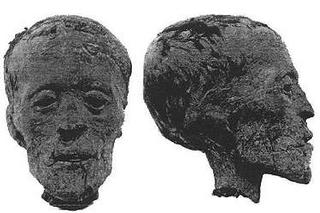Oxford University this week said it was creating the Oxford Internet Institute, a multidisciplinary center dedicated to studying the Internet's societal impact.
Published:
13 May 2001 y., Sunday
The center was made possible by a $14.23 million donation from the Shirley Foundation, matched by public funds of $7.11 million from the Higher Education Funding Council For England (HEFCE).
Dame Stephanie Shirley, founder of the Shirley Foundation, says she gave the money because she wanted to ensure that Britain was an authoritative leader in understanding the social and ethical issues and global concerns emerging from Internet use. The institute will be an international center for collaboration among universities and public and private sectors. But, because it is based at academically independent Oxford University and is funded by donations, commercial interests won't be reflected in the institute's studies and reports.
Everyone involved in creating the institute has an agenda for participating. England's Secretary of State for Education David Blunkett says that one of the center's top priorities will be research issues surrounding cryptography, intellectual property, and security.
Meanwhile, HEFCE's chief executive Sir Brian Fender is excited that the institute will create a technology-based academic community that will position the United Kingdom as a global leader when it comes to addressing social concerns of the Internet.
The primary research programs will focus on the fundamental shifts in human behavior and interactions as a result of technology, comparative media law and policy, and creating new educational software.
Šaltinis:
InformationWeek
Copying, publishing, announcing any information from the News.lt portal without written permission of News.lt editorial office is prohibited.
The most popular articles
 Forget burning bras, the latest in "women's liberation" is a product making a comeback in Japan that makers claim allows women to ditch tight-fitting underwear - loincloths.
more »
Forget burning bras, the latest in "women's liberation" is a product making a comeback in Japan that makers claim allows women to ditch tight-fitting underwear - loincloths.
more »
 We revel in the ways in which mobile phones and wireless internet make our lives easier.
more »
We revel in the ways in which mobile phones and wireless internet make our lives easier.
more »
 For almost a decade a series of laws have protected Europe's workers from discrimination on the basis of age, disability, sexuality or religious beliefs.
more »
For almost a decade a series of laws have protected Europe's workers from discrimination on the basis of age, disability, sexuality or religious beliefs.
more »
 Earth Hour 2009 is an opportunity for hundreds of millions of people all around the world to switch off their lights as a demonstration, a symbolic action to show to governments we need you to take action on climate change.
more »
Earth Hour 2009 is an opportunity for hundreds of millions of people all around the world to switch off their lights as a demonstration, a symbolic action to show to governments we need you to take action on climate change.
more »
 From 4-7 June millions of people will have their chance to vote in the European Parliament elections.
more »
From 4-7 June millions of people will have their chance to vote in the European Parliament elections.
more »
 One town in Poland has just started a "rent-a-grandparent" programme.
more »
One town in Poland has just started a "rent-a-grandparent" programme.
more »
 A key component of the EU's internal market for goods and services is the possibility of buying and selling across Europe.
more »
A key component of the EU's internal market for goods and services is the possibility of buying and selling across Europe.
more »
 Polish farmers are intimidated by the mysterious predator.
more »
Polish farmers are intimidated by the mysterious predator.
more »
 The costs of fossil fuels are increasing and global warming is accelerating.
more »
The costs of fossil fuels are increasing and global warming is accelerating.
more »
 According to archaeologists, the mummy of a 50-year-old woman, discovered on San Lorenzo island, was most likely an elite member of the Pre-Incan Ichma culture.
more »
According to archaeologists, the mummy of a 50-year-old woman, discovered on San Lorenzo island, was most likely an elite member of the Pre-Incan Ichma culture.
more »